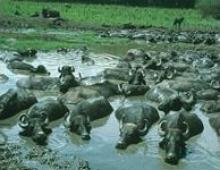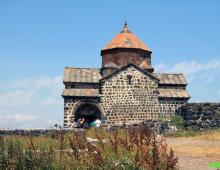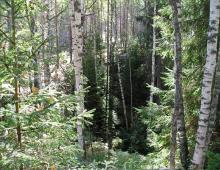Sockets around the world. Types of sockets in hotels of tourist countries (UAE, Cyprus, Thailand, Vietnam, Italy, etc.)
Boiler and the plug of the old Soviet boiler does not fit. It is necessary to take TWO forks - adapter. If you lose one (and you will definitely lose something), the second will remain. It is also worth taking ... water in the evening at the hotel for vermicelli-mashed potatoes or coffee-tea. Together with adapter. Eat (dine) in restaurants - where the guide advises - on the way (Polish restaurant Paradise...
Vaclav... : - can you tell me where Europeans travel by bus at night? -With pleasure. From Germany to Spain, Italy, England, etc. As they successfully integrate into German society, "new" Europeans are increasingly turning to German travel agencies offering air tours to the same Spain. And then along the knurled track - from the hotel on a comfortable bus to Seville, Granada, Barcelona. Asking ... they go by bus (!) At night (!) On tours "I did not expect to receive an answer" by plane to Spain". And Quote: from the hotel on a comfortable bus to Seville, Granada, Barcelona - this is just a song ...
- The Portuguese are a non-confrontational and sociable people. There is no need to be shy or take a hostile attitude towards their friendliness - this will only ruin the experience. You can turn to any resident for help, he will definitely listen. The Portuguese are very pleased when tourists try to speak their language, but sign language is enough.
clothing
- It is necessary to choose the right shoes, especially for women. In many Portuguese cities, the terrain and paving stones on the sidewalks will turn walking in heels into a real torment. Therefore, it is worth taking care of comfortable sneakers or sneakers.
Food
- The Portuguese are very punctual when it comes to food, so restaurants are only open for lunch from about 12:00 to 15:00 and dinner from about 19:00 to 23:00. Some close even earlier. From morning to evening, only cafes are open, where it is not very customary to eat up and fast foods.
- The right way to find good restaurant- pay attention to where they eat locals. As a rule, tasty and inexpensive food is served in establishments with a simple, sometimes even boring interior. Such restaurants, by the way, are almost always full.
- A great option for an economical lunch is a set menu, which in Portuguese restaurants is simply called menu. There is usually a choice between meat and fish, with a drink included with lunch. In good establishments, the menu varies from day to day.
- Snacks that are brought at the beginning, such as bread, different types olives or cheese are not a compliment, as in many countries. You will have to pay for them, and sometimes as much as for the main course. To refuse snacks, you can say: “naw, obrigado” (if a man speaks) or “naw, obrigada” (if a woman speaks), which translates as “no, thanks.”
- Portions in Portuguese restaurants are quite large, so the main course can almost always be safely shared between two.
- Feel free to order homemade wine in restaurants - it is of excellent quality and cheaper than vintage. Wine is brought in a decanter and sometimes in a bottle.
- Everything that you ordered can be asked to wrap with you. This is not unusual, the "take away" system is very common in Portugal, including among the locals.
- Some toilets in Portugal are marked in an unusual way: the letter H indicates the men's toilet, and the letter S indicates the women's. There are a lot of free toilets, for example, in train stations and in supermarkets. You can go to any cafe, but it is considered good form to order something.
Electricity
- Mains voltage 230 V, 50 Hz. Outlets in Portugal type C and F.
Geographical position
Location -- BARCELONA, Spain
(N 41° 16") (E 2° 4") (GMT +1.0 hour)
Elevation -- 6 m above sea level
Normal elevation pressure -- 101253 Pa
Barcelona is located on the northeast coast of Spain - about two hours from the French border.
Timezone.
The time zone of Spain is GMT + 1 hour.
Seasons
Summer- June August
Winter– December - February
Autumn– September - November
Communication languages
Barcelona is bilingual - Spanish and Catalan. Barcelona is the capital of Catalonia, so the Catalan language is widely spoken among the population of Barcelona. However, both Spanish and Catalan are used interchangeably and are widely spoken.
AT tourist places some will speak not only Spanish but also English. But take a step away from the beaten track and most will only speak Spanish or Catalan.
Barcelona, however, is very cosmopolitan European city, where millions of tourists come every year, so you should not have any difficulties with communication.
Power supply system
The supply voltage in Spain is 220V and sockets with 2 sockets. Appliances from any European country where 240V is used, such as the United Kingdom and Ireland, will work normally in Spain.
If you plan to use UK standard electrical plugs, you will need to use a 3-socket to 2-socket adapter. To use electrical appliances from the USA, where the supply voltage is 110 V, you will need a step-down transformer up to 110 V. Electrical appliances designed for 110 V can be broken by connecting them to a 220 V outlet.
It is recommended to buy electrical adapters in international airport departure, and not in an electrical appliance store in Barcelona. In my experience, adapters bought in Spain are of poor build quality and tend to fall apart when unplugged. It's much better to buy adapters at your airport, even if they cost a couple of pounds/euros/dollars more.
Water supply
Drinking water in Barcelona tastes very bad and it is highly recommended to drink bottled water here. Although tap water is not dangerous, it is preferable to drink bottled water. Inexpensive mineral water sold in local supermarkets, such as the supermarket on the Ramblas.
If you buy mineral water from the stalls on the Ramblas, it can cost you €2.00 per liter, but the same bottle in the supermarket will cost €0.50 (half a euro).
Identification
Spanish law requires you to carry a photo ID at all times. This can be a passport, driver's license or foreign identity card. With security tightening in the city, it is highly recommended to carry at least a copy of your passport in case you get stopped.
Phone calls
From abroad, you can call Barcelona by dialing the Spanish code first. +34 followed by the area code for Barcelona 93 .
Cheap international calls
The cheapest international calls come from a card, which you can buy in stores called "Tabac". You can also buy these cards at Internet cafes and some magazine kiosks.
First, you will need to call a local or toll-free number. Then you need to select the language in which you want to listen to the instructions, enter the pin code indicated on the card, and then dial the international number.
Cards must be chosen carefully because some of them allow you to make cheap calls only to certain countries.
For calls to the USA and European countries, I liked the card Euro Talk Card. This card costs €5.00 and is valid for 3 hours of calls to any city in the US, Canada or Europe via a toll-free number.
The Euro Talk Card is the best value for your money, but you won't be able to buy it in stores for Tabacs. You may find another card with similar conditions.
Dress code
Dress code in Barcelona is free. Jeans and T-shirts are par for the course, and in simple attire, you'll be let into almost all establishments, except for very exclusive restaurants. The only exception is sleeveless shirts, in which you might have trouble getting into bars or clubs. Some expensive nightclubs are only allowed in shoes (no sweatpants), and sleeveless shirts are also not allowed.
Money/Currency
As in all of Spain, in Barcelona the euro is in circulation.
Comparison of the population of Barcelona with other cities in Spain
If you want to compare the population of Barcelona with other cities in Spain, I can recommend you a page on the excellent Spanish-fiestas.com travel website.
Language
Spanish
Time
Difference with Moscow: -2 hours
Currency and tips
Euro. Tipping in Spain is not customary to give, with the exception of the catering sector. In small bars and restaurants, locals usually leave change as a tip. In larger establishments, tips are given from 5% to 10% of the bill.
Mains voltage
220 volt. In Spain, sockets are of the European standard type, so an adapter is not needed.
The medicine
water you can drink from the tap in Madrid and the province of Granada. In small settlements, water is also of acceptable quality, but it is not recommended to drink it. Bottled water is sold in most stores.
Medicine in Spain is paid. If you have health insurance, first aid will be provided free of charge. In the event of an insured event, call the insurance company back, stating the insurance number and the reason for the call.
Pharmacies marked with the words Farmacia and a green cross. Opening hours - until 20:00 with a break for a siesta (lunch lasting 3-4 hours). When the pharmacy is closed, there is information on the doors about where the pharmacy is on duty and/or what phone number can be used to contact a doctor.
Transport
Buses – comfortable view transport for movement between the cities of Spain. The bus route is indicated on the electronic scoreboard, and the fare is paid directly to the driver or a ticket is purchased at the bus station (in the case of a long distance).
On the mainland of the country, a network is developed railways . Can move to commuter trains, regional trains, high-speed and high-speed international trains. Tickets must be purchased in advance at the station.
Madrid Metro one of the longest in the world, literally anywhere in the city there is an opportunity to get on this transport. The metro network consists of 12 lines, operating hours from 06:00 am to 02:00 am. Children under the age of four can ride the subway for free.
Taxi in Spain can be called by phone from a hotel or bar. There are taxi ranks on the street, the cars are distinguished by a light board with the corresponding inscription - taxi. Payment for services is made by the meter, while night and holiday rates are slightly higher than standard. A libre flag or a green light on a taxi means that the car is free.
Car rental
To rent a car, you need standard documents: international driving license and a passport. Additionally, some companies may require that the rights were issued at least one or two years ago, and the age was at least 21 or 23 years old. Quite often, a deposit is also required.
Roads in Spain are divided into three types: national (free, marked on road signs and maps with the letter N), motorways (toll, sign A), municipal (free, sign C). The prevailing number of motorways in Catalonia is paid. Toll roads significantly reduce travel time and as a result are no more expensive than free ones, this is due to lower fuel consumption. The maximum speed limit on expressways is 110 km/h, on national highways 100 km/h, settlements- 50 km / h.
Phone and communication
For telephone conversations in Spain, it is convenient to use cards sold in shops and kiosks. The main post office is open 24/7. The reduced rate is valid from 22:00 to 06:00 and on public holidays.
To call from Spain to Russia, you need to dial 007 (country code) + area code + subscriber number. To call from Russia to Spain - 8 + 10 + 34 (country code) + Spanish city code (without "0") + subscriber number.
Emergency numbers:
Police: 092 (local), 091 (national)
Ambulance (red cross): 22-22-22
Mobile operators: Vodafone, Movistar, Orange, Yoigo
The shops
In Spain, shops are usually open on weekdays from 09:00 to 13:00 and from 16:00 to 20:00, on Saturdays until 12:00. Shopping is best in major cities countries - Madrid, Barcelona, Malaga. The largest chain of department stores is El Corte Ingles, where you can buy whatever your heart desires. Sales (Rebajas) are held twice a year: in summer (July 1 - end of August) and in winter (January 7 - end of February).
Best city for shopping Barcelona, this city is jokingly called "the biggest store in Europe". A large number of different shops and boutiques are located on Passeig de Gracia Boulevard. It is also worth taking a look at shopping center L`Illa ("Island") and shopping and entertainment complex Maremagnum, located in the Old Port.
Active return system Tax Free when leaving Spain, if the purchased goods cost more than 180 euros. In order for you to receive a tax refund in the amount of 6% to 12%, you must present the corresponding check at a special point at the airport before departure.
spanish souvenirs
Classic souvenirs from Spain: fans, castanets, majolica, figurines in national costumes, knives and daggers made of Toledo steel, embroidery and lace.
You can bring your own special souvenirs from different regions of the country. In Andalusia, wonderful ceramics are made, in Cadiz and Salamanca - colored blankets, in Galicia - lace. Bladed weapons lovers may like blades from Toledo and knives from Albacete. Precious metals with artistic ornaments are purchased in Cordoba, Salamanca and Toledo. On the coast mediterranean sea and the Balearic Islands weave hats, baskets and mats. On the island of Mallorca, artificial pearls are produced, as well as products made of colored glass.
Kitchen
The national cuisine of Spain is rich and varied. Conventionally, it can be divided into eight gastronomic zones, each of which is characterized by its own dishes and drinks:
North of Spain: Basque fish dishes, cheeses, Asturian fabada, cider;
Pyrenees: ham and chilindron sauce;
Catalonia: smoked sausages "fuet" and sauce with garlic "Alioli";
Valencia: various rice dishes, including the famous "paella";
Andalusia: cold vegetable soup "gazpacho" and "jabugo" ham from the Huelva region;
Central zone: sausages and baked meat;
Balearic Islands: pork dishes, ensaimadas puff pastry buns;
Canary Islands: dishes of fish and tropical fruits.
Traditionally, Spaniards generously season many dishes with different spices, among which saffron, rosemary, parsley, nutmeg and marjoram are especially popular. Served with hot meals sauces made from red and white wine, herbs and grated almonds. A special dish and a whole ritual is "tapas"(tapas) - light snacks served during the day and evening in the bars of Spain with wine, beer and other drinks.
Within Spain, there are about 40 wine-growing zones, differing in soil composition and climatic conditions. The main types of wine: white (blanco), rose (rosado), red (tinto).
- Top 5 national dishes of Spain
- 1. Paella (rice with seafood, vegetables, chicken, sausage).
- 2. Jamon (raw-cured pork ham).
- 3. Gazpacho (cold vegetable soup).
- 4. Espetos (fish on a skewer).
- 5. Turron (nougat with nuts).
Customs and rules
There are stories about the ardent temperament of the Spaniards. Usually, they are expressive and noisy, they treat tourists kindly. The inhabitants of Spain have two main passions - the love of football and bullfighting.
While in Spain, you should take into account the time siesta- afternoon rest, this period lasts from 13:00 to 16:00. At this time, most shops, banks and government offices are closed for a break.
In Spain, there is a law that prohibits smoking in in public places, with the exception of specially designated places, marked with a sign "ESTÁ PERMITIDO FUMAR".
According to Spanish law, alcohol is not sold after 22:00.
You should not carry large amounts of cash with you, as theft from tourists happens quite often. Despite the severity of law enforcement agencies towards violators, in order to avoid unpleasant situations, it is recommended to keep an eye on your bags and wallets, especially in large cities and resorts.



